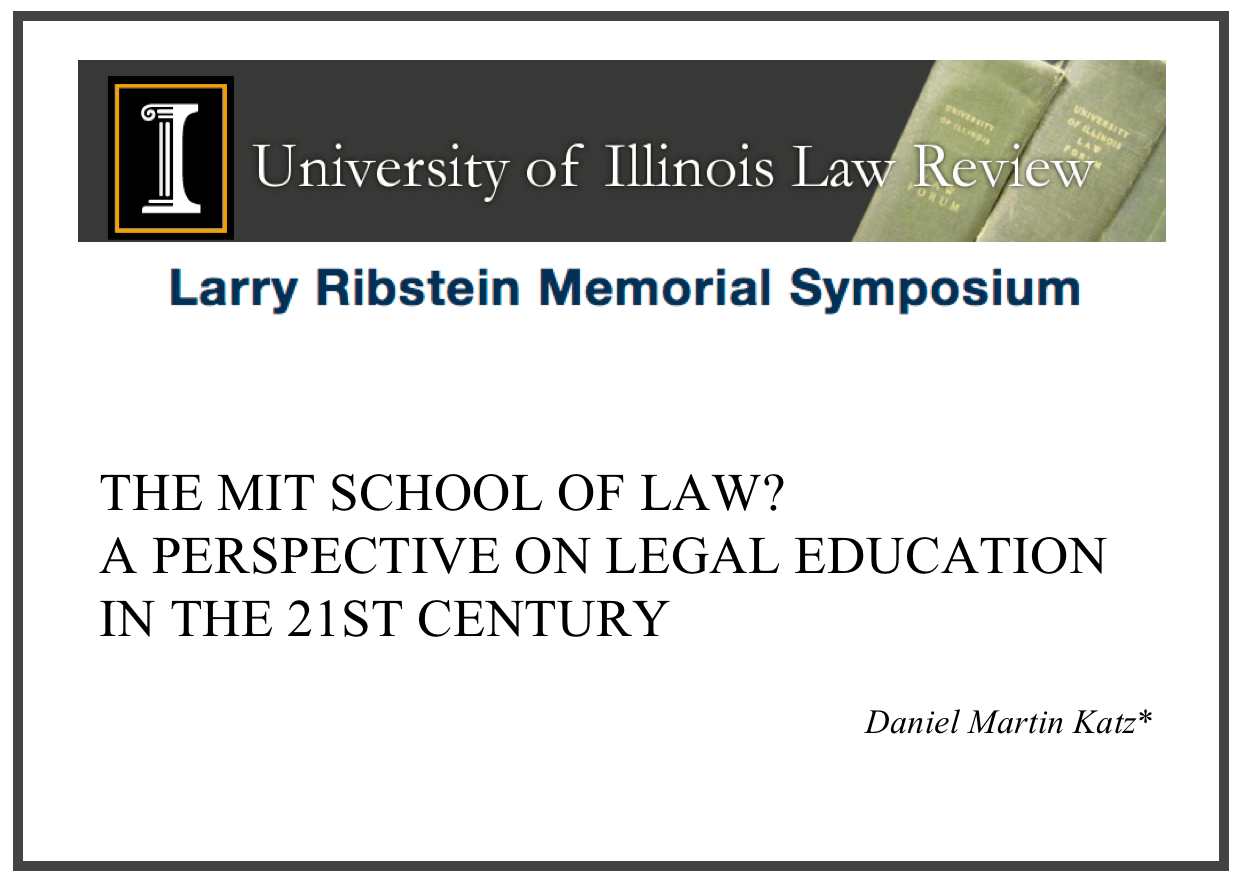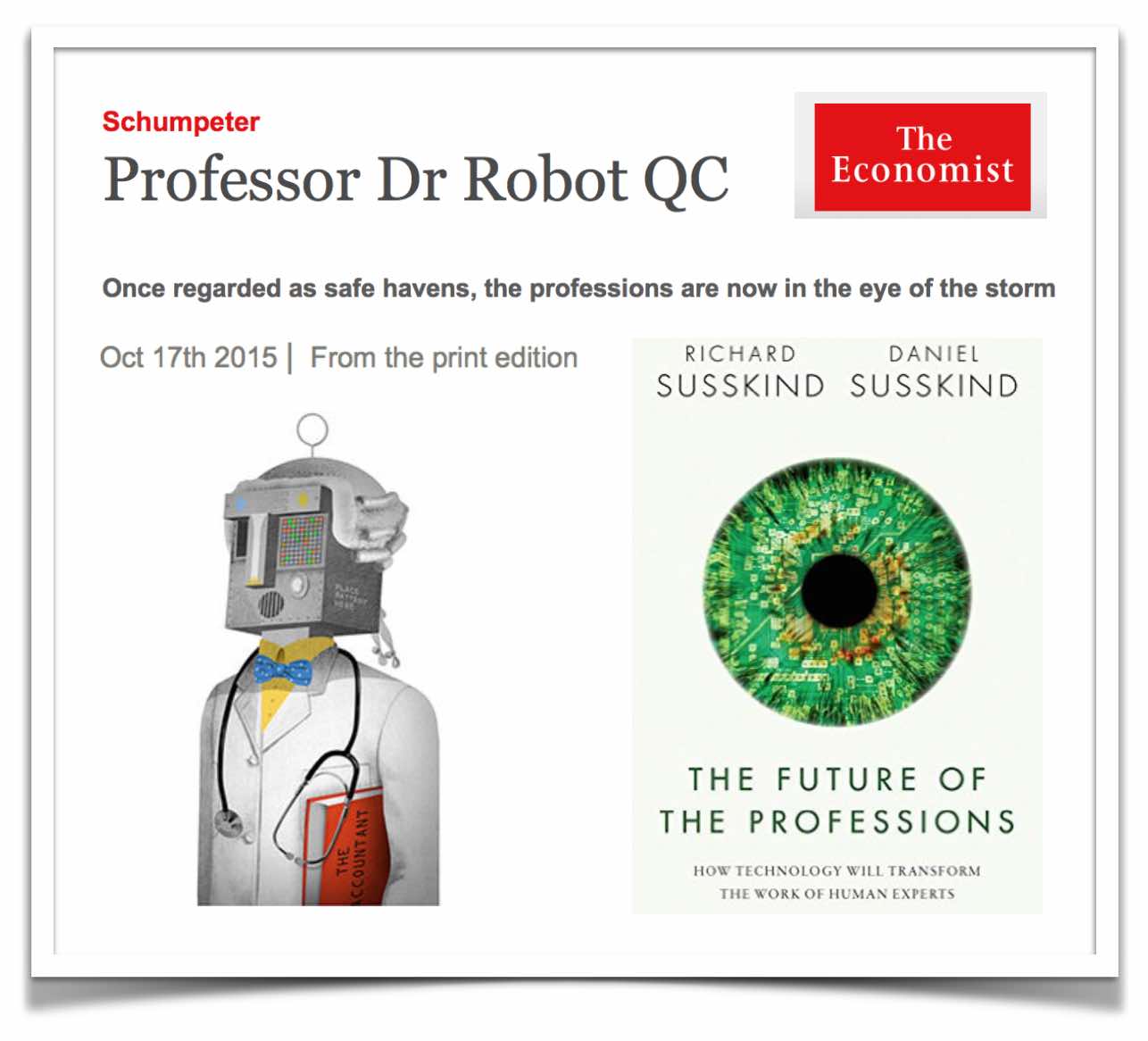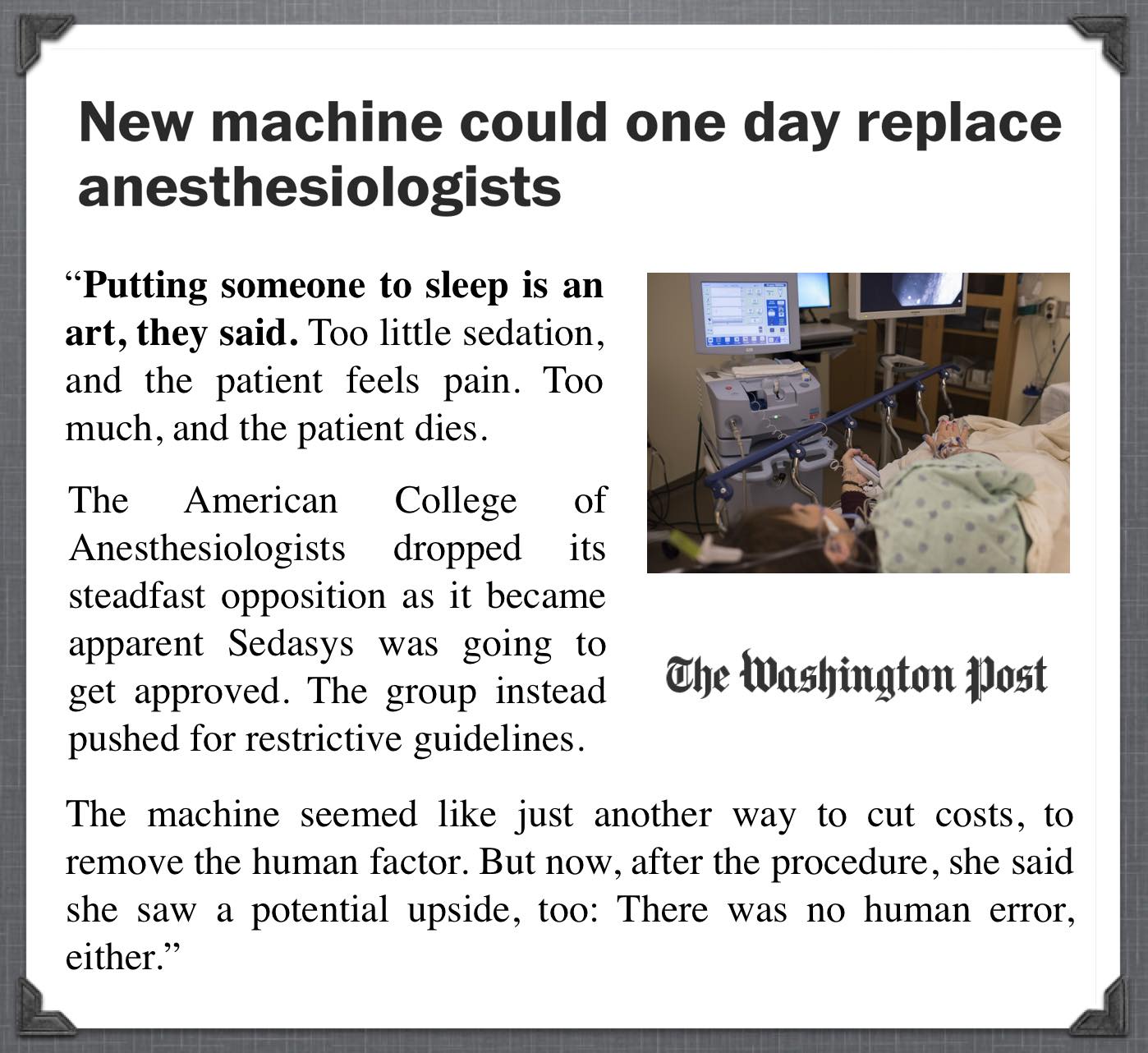 ABSTRACT: “Despite some of the blustery rhetoric attendant to the ongoing market transition, lawyers and the market for legal services are not going away. Lawyers serve integral roles in a wide variety of social and political systems. Their work supports the proper functioning of markets and helps individuals and organizations vindicate their respective rights. At the same time, the processes associated with completing their work—as well as the contours of their respective expertise and judgment—are already changing. These changes are being driven by a number of economic and technological trends, many of which Larry Ribstein identified in a series of important articles published in the years before his untimely death.
ABSTRACT: “Despite some of the blustery rhetoric attendant to the ongoing market transition, lawyers and the market for legal services are not going away. Lawyers serve integral roles in a wide variety of social and political systems. Their work supports the proper functioning of markets and helps individuals and organizations vindicate their respective rights. At the same time, the processes associated with completing their work—as well as the contours of their respective expertise and judgment—are already changing. These changes are being driven by a number of economic and technological trends, many of which Larry Ribstein identified in a series of important articles published in the years before his untimely death.
This Essay is offered as part of a symposium honoring the work of the late Larry Ribstein. It is a thought exercise about a hypothetical MIT School of Law—an institution with the type of curriculum that might help prepare students to have the appropriate level of substantive legal expertise and other useful skills that will allow them to deliver value to their clients as well as develop and administer the rules governing markets, politics, and society as we move further into the 21st Century. It is a blueprint based upon the best available information, and like any other plan of action would need to be modified to take stock of shifting realities over time. It is not a solution for all of legal education. Instead, it is a targeted description of an institution and its substantive content that could compete very favorably in the existing and future market. It is a depiction of an institution whose students would arguably be in high demand. It is a high-level sketch of an institution that would be substantively relevant, appropriately practical, theoretically rigorous and world class.
Part I offers an introduction to the question. Part II sets the stage by highlighting several recent trends in the market for legal services. Taking stock of those trends, Part III highlights an alternative paradigm for legal education and describes the polytechnic style of legal education that students might obtain at an MIT School of Law. Part IV carries through on that basic thought experiment by describing the process of attracting, training, and placing students that would occur at MIT Law. Part V provides some concluding thoughts.”
Available at: Daniel Martin Katz, The MIT School of Law: A Perspective on Legal Education in the 21st Century, 2014 Illinois L. Rev (Forthcoming)
 “Organized by Wolters Kluwer and Inkietos, and under the honorary presidency of His Majesty Felipe VI, the Legal Management Forum aims to serve as a space for reflection and knowledge of the main challenges and opportunities related to management in the legal profession.”
“Organized by Wolters Kluwer and Inkietos, and under the honorary presidency of His Majesty Felipe VI, the Legal Management Forum aims to serve as a space for reflection and knowledge of the main challenges and opportunities related to management in the legal profession.”










